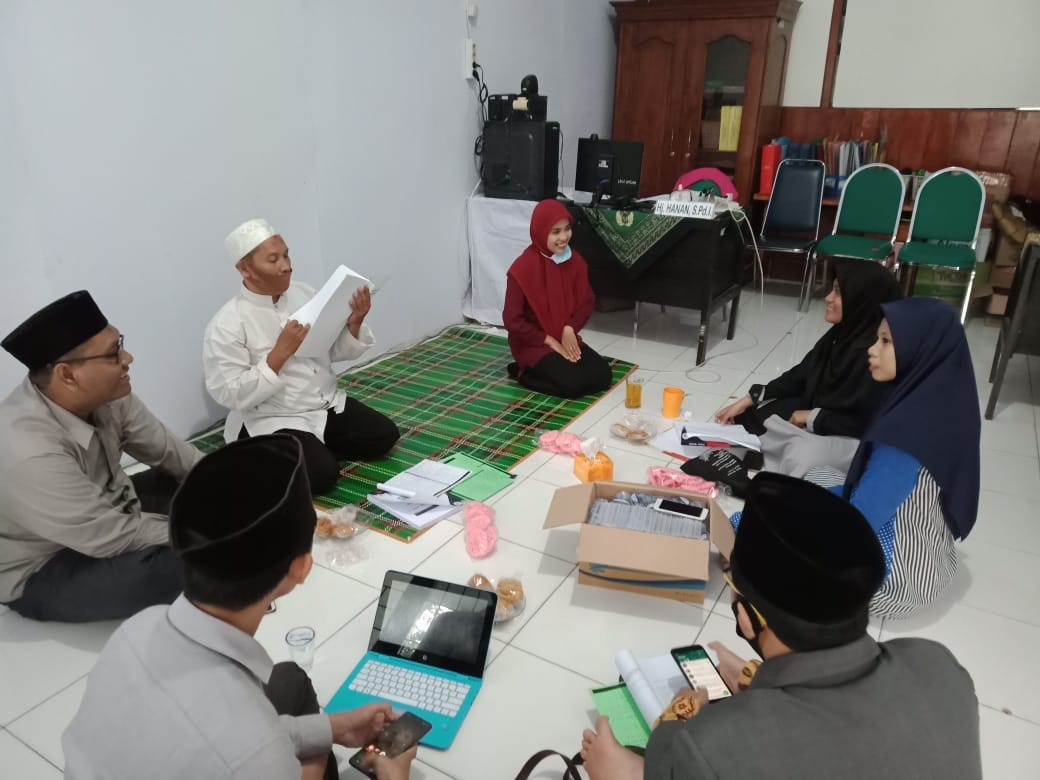Low-tech MALL for EFL intensive class among university students in remote areas
DOI:
https://doi.org/10.21070/jees.v6i1.1090Keywords:
Low Tech Mobile Assisted Language Learning, EFL Intensive Class, Remote AreaAbstract
Covid-19 pandemic situation has forced EFL teachers and students to create innovation in online classroom activities. Through a case study at one of private universities in Indonesia, this research aim at exploring the implementation of mobile phone used in learning process in low tech Mobile Assisted Language Learning (MALL). The data were collected from observation, in-depth interview, and document review. The findings reveal that mobile phone has an imperative role in concocting student to be full-fledge community, stimulating the feeling of perception, unexceptional mindfulness and teaching of socio-political and social classification. Further, mobile phone and its supporting materials in students’ tools rely upon whether there is appropriate security to keep the device, stockpiling of internet data package, wellsprings of electric supply, gracefully of each provider signal, availability to flexibility access in various areas, especially mountainous to remote area. Regarding the challenges, the students experienced multi-layer intricacies: (a) learning facilities including absence of speed data transfer capacity, (b) students’ awareness and proficiency in English, and (c) techno pedagogical insight over lecturers. This study implies that enhancement on the student capacity at low tech level of learning through mobile phone provide meaningful learning assistance, particularly in term of efficiency during classroom activities
Downloads
References
Aliakbari, M., & Heidarzadi, M. (2015). The relationship between EFL Teachers’ Beliefs and actual practices of classroom management. Cogent Education, 4(1), 1–13. https://doi.org/10.1080/2331186X.2015.1039255.
Creswell, J. W. (2012). Educational Research: Planning, Conducting, and Evaluating Quantitative and Qualitative Research (4th ed.). Pearson.
Elliott, J. (2005). Using Narrative in Social Research: Qualitative and Quantitative Research. SAGE.
Facer, K. (2004). Foreword to the Literature in Mobile Technologies and Learning, in: (Eds) L.Naismith, P.Lonsdale, G.Vavoula & M. Sharples Futurelab report 11. http://www.futurelab.org.uk/resources/documents/lit_reviews/Mobile_Review.pdf.
Fallahkhair, S., Pemberton, L. & Griffiths, R. 2007. Development of a cross-platform ubiquitous language learning service via mobile phone and interactive television. Journal of Computer Assisted Learning, 23 (4), 312-325.
Fernandez, C. (2014). Knowledge Base for Teaching and Pedagogical Content Knowledge (PCK): Some Useful Models and Implications for Teachers’ Training. Problems of Education in the 21st Century, 60, 79–100.
Guichon, N. & Hauck, M. 2011.Teacher Education Research in CALL and CMC: More in Demand than ever. ReCALL 23(3): 187–199. doi:10.1017/S0958344011000139
Hampel, R. (2006) Rethinking Task Design for the Digital Age: A Framework for Language Teaching and Learning in a Synchronous Online Environment. ReCALL, 18(1): 105–121.
Jati, A. F., Fauziati, E., & Wijayanto, A. (2019). Why Do the Students Do Disruptive Behavior in English classroom? A Case Study on Senior High School Students in One of the Small Town in Indonesia. International Journal of Language Teaching and Education, 3(2), 130–141. https://doi.org/10.22437/ijolte.v3i2.7701
Johnson, B., & Christensen, L. (2008). Educational Research: Quantitative, Qualitative, and Mixed Approaches (3rd ed.). Sage Publications, Inc.
Khotimah, K., Widiati, U., Mustofa, M., & Ubaidillah, M. F. (2019). Autonomous English Learning: Teachers’ and Students’ Perceptions. Indonesian Journal of Applied Linguistics, 9, 371-381. https://doi.org/10.17509/ijal.v9i2.20234
Kukulska-Hulme, A., Traxler, J. & Pettit, J. (2007). Designed and User-generated Activity in the Mobile Age, Journal of Learning Design, 2(1), 52-65. http://www.jld.qut.edu.au/.
Laurillard, D. (2007). Pedagogical Forms of Mobile Learning: Framing Research Questions. In Pachler, N. (ed.) (2007) Mobile learning – Towards a Research Agenda. 153-175. WLE Centre, Institute of Education, University of London.
Lincoln, Y. S. & Guba, E. G. (1990). Judging the Quality of Case Study Reports. International Journal of Qualitative Studies in Education, 3(1), 53–59. https://doi.org/10.1080/0951839900030105
Livingstone, S. (2012). Critical Reflections on the benefits of ICT in Education. Oxford Review of Education, 38(1),9–24. https://doi.org/10.1080/03054985.2011.577938
Macias, D. F. (2018). Classroom Management in Foreign Language Education: An Exploratory Review. Profile: Issues in Teachers´ Professional Development, 20(1), 153–166. https://doi.org/10.15446/profile.v20n1.60001
Miles, M. B., Huberman, A. M., & Saldana, J. (2013). Qualitative Data Analysis: A Method Sourcebook (3rd ed.). Arizona State University.
Mistar, J. (2012). Creating Environment Conducive to English Learning. Language-Edu 1(1)
Munene, T. S and Mutsotso, S. N. 2019. Kibabii University Use of Television in Promoting Teaching and Learning in Schools. British International Journal of Education and Social Sciences 6(5).
Muyassaroh, M. N., Asib, A., & Marmanto, S. (2019). The teacher’s beliefs and practices on the use of digital comics in teaching writing: A qualitative case study. International Journal of Language Teaching and Education, 3(1), 45–60. https://doi.org/10.22437/ijolte.v3i1.6502
Norbrook, H., & Scott, P. (2003). Motivation in mobile modern foreign language learning. In (Eds.),J. Attewell, G. Da Bormida, M. Sharples, & C. Savill-Smith MLEARN 2003:Learning with mobile devices. pp.50-51. London: Learning and Skills Development Agency. http://www.lsda.org.uk/files/pdf/1421.pdf#.
O’Donoghue, T. A., & Punch, K. F. (2003). Qualitative Educational Research in Action: Doing and Reflecting. Routledge. https://doi.org/10.4324/9780203506301
Pradipta, P. (2020) Basic Interpersonal Communicative Skill Among Students in Junior High School. Language-Edu 9(2)
Rahmadi, A., & Istiqamah, I. (2016). Education in Remote Areas from Teacher’s Perspective: A case study of East Kalimantan, Indonesia. In Z. Sakhiyya, I. M. A. Arsana & M. Rahmadewi (Eds.), Education counts (pp. 1-25). Perhimpunan Pelajar.
Souriyavongsa, T., Rany, S., Abidin, M. J. Z., & Mei, L. L. (2013). Factors Causes Students Low English Language Learning: A Case Study in the National University of Laos. International Journal of English Language Education, 1(1), 179-192.
Trifanova, A., Knapp, J., Ronchetti, M., & Gamper, J. (2004). Mobile ELDIT: Challenges in the transitions from an e-learning to an m-learning system. Trento, Italy: University of Trento. http://eprints.biblio.unitn.it/archive/00000532/01/paper4911.pdf.

Published
How to Cite
Issue
Section
License
Copyright (c) 2021 Shofiyatul Hasanah, Parahita Pradipta

This work is licensed under a Creative Commons Attribution 4.0 International License.







